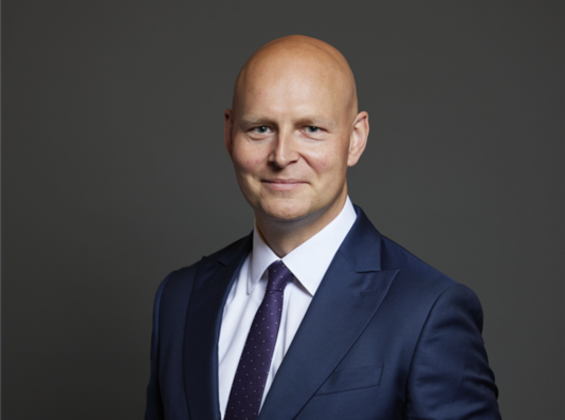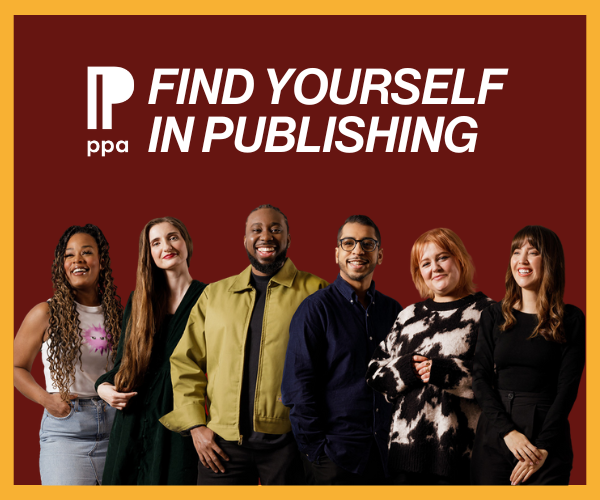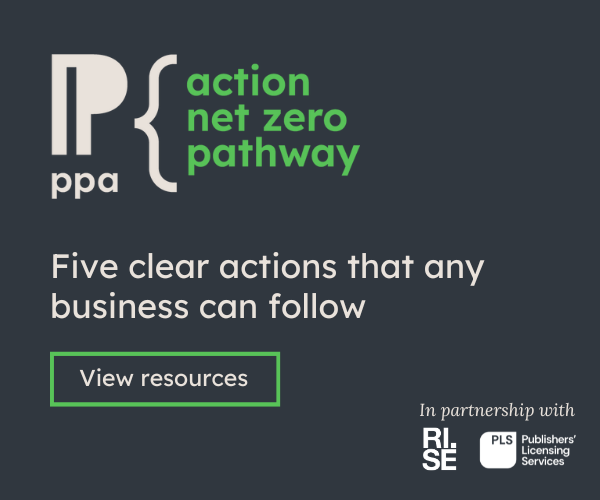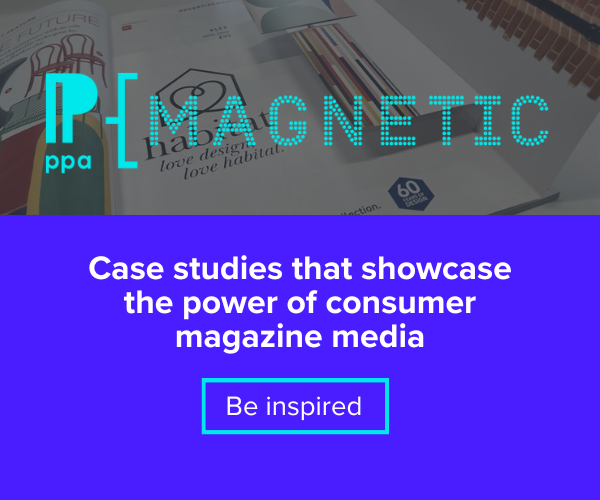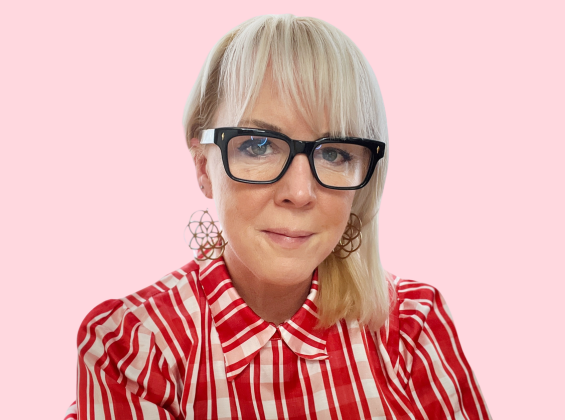*What made you want to work in publishing?
*
I think that there's a kind of temperament that is drawn to journalism, and I probably have a lot of the characteristics of that temperament. In other words, a certain curiosity about the world, an interest in current affairs and events. Also, a certain cynicism, although I'm not as cynical as a lot of journalists. And a desire to broadcast your view and analysis.
Initially an opportunity in journalism came up, I took it and entered into business journalism and have become more absorbed over time. The biggest turning point in my career was to be part of a team that launched and founded our own publishing business, Caspian Publishing, in 1996. That was a an amazing experience – extremely exciting and positive. I’m now in a different role with Think, which is an excellent business. And I feel as if I'm contributing something useful.**
**
*You have a background in journalism, what’s it like now working in another part of the industry, focusing on content strategy rather than just traditional content?
*
There are obviously differences. Of course there are! But the fundamentals of journalism are still the fundamentals of good content creation and good content strategy. That is: you've got to have something interesting to communicate. Whether you're doing a lavish magazine, or a short-form post, unless it's fresh, surprising, well-informed and new, people are going to gloss over it.
I always used to say this to magazine colleagues: nobody wants to read your magazine. They’ve got better things to do. They don't have time. You can't approach content with complacency, or any assumption that people are going to be interested in what you're trying to say. You've got to start from the premise that they don’t have time. You’ve got to use everything in your armoury to grab their attention.
Tim Wu, the author, wrote a book called The Attention Merchants where he discusses the fight for audience’s attention. It’s good to start with the assumption that your audience or recipient is not with you, and your job is to get them with you.**
**
*What has been a career highlight?
*
When I started to think about this question, I realised all my answers revolved around launching new things. Launching Real Business, the first magazine in the UK for entrepreneurs, in 1997 was great. That was a very good piece of work, and it was consistently good over a period of time. More recently launching Influence magazine for the CIPR was a highlight. It was experimental and had a bit of dash about it.
At Caspian we launched the First Women Awards, which was a co-production with the CBI. Those are some of my best memories of working in the events/publishing world. I had some amazing experiences and met some really remarkable people.
I did two pieces of work with the Centre for Entrepreneurs that stand out. One looked the number of companies in the UK founded by people who are technically migrants. That came out and made a really powerful impression. And then we did a separate piece of work on entrepreneurship and seaside towns – which are kind of underdog places. That did a lot of good.**
**
*What advice would you give to someone who is experiencing a creative slump/content drought?
*
For me, it is about inputs. There's a line that I have said to some colleagues: it's not about what you write, it's about what you read. Because, frankly, robots can create content. Anyone can create content, we can all just go online and put something out. What distinguishes the best content is knowing what to leave out. You only know what to leave out if you've read you understand the context. So go read a book, go to the theatre, go and watch a piece of television! Listen to an interesting podcast. Take something in and then you will be better informed.**
**
*As Content Development Director at Think, you’re in charge of developing an editorial strategy for brands. You work across newsletters, podcasts, webinars etc. How do you decide what medium is best for communicating with individual audiences?
*
I think the key is really thinking deeply about who the audience is. And if it's a very small audience, which it sometimes is in communications and publishing, then you might think about it on an individual level. This is where some of the conventions of journalism come in: just be a good listener. Listen to your audience and think about where they are. Do they inhabit LinkedIn more than Twitter;, Instagram more than newsletters? There are lots of tools that can help you do that – social listening tools, analytics and the like. But then there is also that old-school habit of just talking to a good representative sample and finding out about their daily rhythm. It's a combination of looking in detail at data, but then applying some common sense and instinct.**
**
*You were Vice Chairman of the Women of the Future Programme for 15 years, what initially inspired you to be involved with platforming the careers of women, in a time when this wasn’t such a key focus for individuals and businesses?
*
I worked with a lady called Pinky Lilani CBE DL for about 15 years. She created the Asian Women of Achievement Awards and I worked with her on developing and building up that programme. Then she came up with an idea of doing a project that was more broadly aimed at women under 35, celebrating unusual and standout achievements among women in that age bracket.
I was one of the few men working on that project and she gave me quite a public role in it as well, which was very exciting. Pinky was, and remains, ahead of her time in what she does.
There was another project that we did called the First Women Awards. That was uplifting and exciting. I met amazing people and we were able to tell some really powerful stories and recognise some people who really deserved it. We were able to celebrate people who weren't your obvious achievers – not everyone is an Alpha person! There is space within the Women the Future project to celebrate people who aren't overt, hard-hitting, obvious achievers, but whose work goes under the radar. I like that about it.**
**
*What magazine do you stockpile?
*
I have a subscription to The Week, and my kids have a subscription to The Week Junior. I always have a big pile of magazines on my desk at work – mainly trade and professional magazines. I like to feed myself with them to get new ideas.
But the best magazine I've looked at in detail for a while is one that my son stockpiles, and that’s Thrasher. It's a really brilliant magazine. You can feel the enthusiasm for the subject matter, and it just absolutely rips off the page. It's amazing because my son is 16, so is totally a digital native, but he is so excited when his latest issue of Thrasher comes in. It's like a huge treat has arrived through the door, and his eyes light up when it lands on the mat. It shows magazines can still do that.**
**
*What’s on your radar?
*
Most of our clients are predominantly membership organisations so I'm interested in that world. If you open the lens a bit wider than membership organisations and think about the idea of membership more broadly, there are some interesting things taking place. A lot of commercial organisations and brands are trying to establish a ‘membership style’ relationship with their audiences and customers. That's a relationship built on a sense of loyalty, deep connection and personal connection – that that is interesting in and of itself. But sometimes it can be confected when it is done by a commercial brand. Actually the organisations that really establish that sense of membership do need to be membership organisations.
The other thing is niche communities and how you build a relationship through media with a niche community. I observe quite closely the world of middle distance running and cross-country because my son is very interested in that area. It's worth watching they're doing. There are obscure American college middle-distance runners with huge followings on Instagram who are building really successful careers and sponsorship off the back of something that's invisible to most people. That will be happening in loads of other places too. There are some important lessons there about how niche activities and niche communities can still become big, scalable operations through the smart use of social media and broadcasting.**
**
